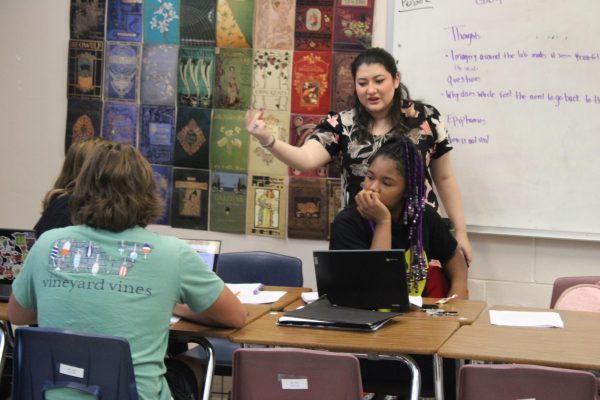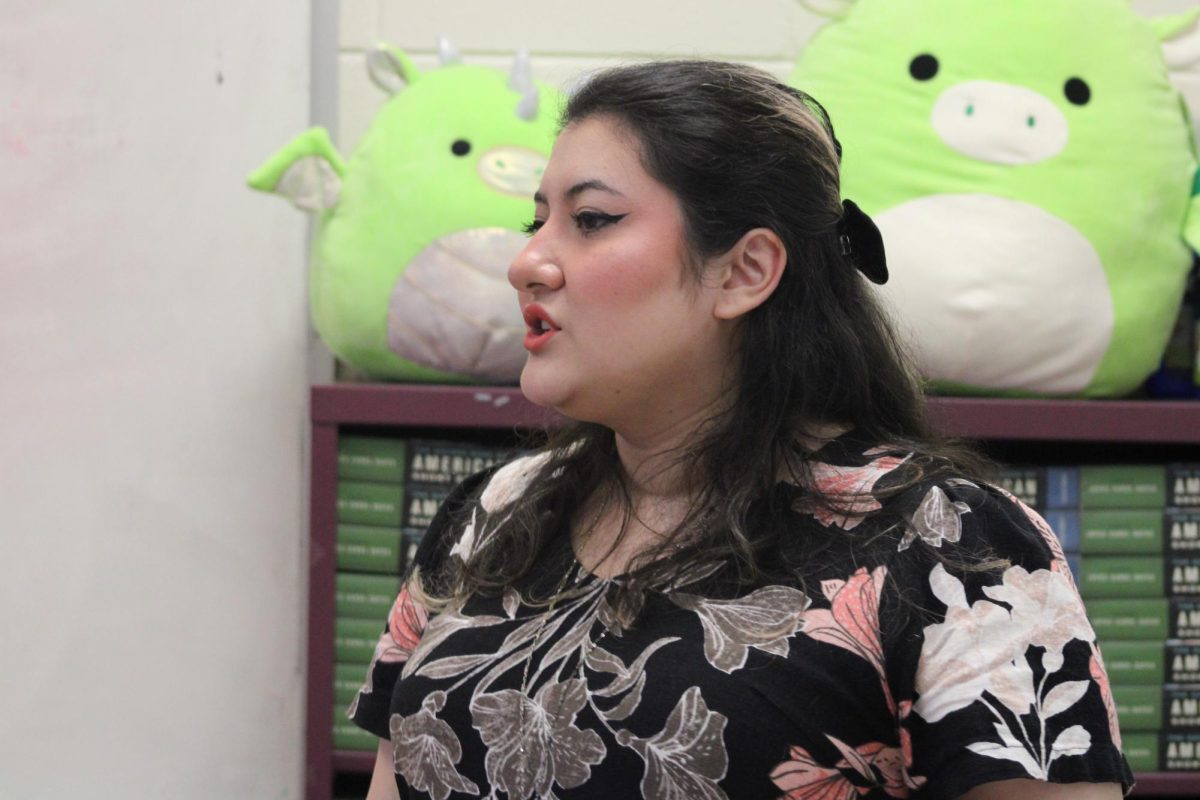Ms. Okamoto-Green has done a lot since graduating from ARGS in 2014, such as receiving an MFA in Poetry from George Mason University and becoming a writer-in-residence at the Visual Arts Center of Richmond (RVA). Now she’s back to teach the new generation of students.
“It’s like that full circle moment,” says Ms. Okamoto-Green. “It’s been so great seeing that the vibe of our school is still very much alive.” During her time at ARGS, Ms. Okamoto-Green was a Literary Arts student, taught by many of the same teachers that instruct the current Lit Arts department. “What I love most about being back is that I can chat with my own teachers as colleagues… they’ve been so kind and helpful to me,” says Ms. Okamoto-Green. “Even ten years later, the teachers at ARGS believe in me even when I don’t completely believe in myself.”
But this isn’t her first time returning to the school since her graduation. Last year, she stopped by to give a presentation to the Literary Arts department during a Focus Area Friday, where students are able to have more time to focus on their respective majors. “It was interesting because I [was] looking out over the sea of Lit Arts and what it is now,” says Ms. Okamoto-Green. “Seeing how excited everyone is to just write… I cherish that so much.”
Now, Ms. Okamoto-Green is much more than a visitor. She currently serves as the resident of Room 301, teaching English classes to

both 11th and 12th graders full-time. Many of her students appreciate the way Ms. Okamoto-Green allows them to interpret different works of literature in their own ways. She also keeps a constant stash of Hi-Chews in her desk, which she doesn’t hesitate to share with those she deems worthy. “The environment is very fun but in an educational way,” says Junior Charles Walton, who attends Ms. Okamoto-Green’s English 11 class. “It’s always a little more casual than most of my other classes. Her teaching style is pretty laid back while still giving the proper knowledge.”
Previously, Ms. Okamoto-Green was a part-time instructor at RVA. The teaching environment there was much different than that of a regular classroom—students would come and go for around 2 hours at a time, so Ms. Okamoto-Green was unable to form in-depth connections with the people she taught. Now, the adjustment to a full-time day with students is a welcomed change. “It’s a lot more social interaction and one-on-one stuff,” she says. “With these students, I’m trying to create bonds, to know them, so we can all help each other.”
That isn’t to say the change isn’t a difficult one. “[Teaching] has been, in some ways, very, very magical. In other ways, difficult,” says Ms. Okamoto-Green. “To be honest, there are times when I’m done teaching and I’m like, ‘I don’t know, did that go well?” Ms. Okamoto-Green says she remedies these thoughts by thinking of it like this: as long as the students form their own opinions about the writing she has them read, she’s happy. “It’s just about getting that experience of saying your opinions, hearing them out loud, editing them, and workshopping them back and forth as the discussion goes.”
Her main goal for her students is to get them to succeed, and to show them that writing things like essays is not a form of torture. When she had asked her classes what feelings they associated with essays, the majority of her students had referred to the topic as something that brought various forms of suffering. Ms. Okamoto-Green hopes to change that. Recently, she‘s been showing her classes how story-esque an essay can be. “Maybe next time when someone asks them, ‘What words come to mind when you think of an essay,’ they don’t think of pain and death and sadness. I think another one they said was ‘punishment,’” says Ms. Okamoto-Green. “I want to change that mindset. [Creative essays] are very therapeutic. You are looking at these events in your life—some might be traumatic when connecting the dots, but you’re doing it in a way that isn’t as direct. And it really helps you understand yourself.”
Ultimately, Ms. Okamoto-Green wants to provide a comfortable and informative learning environment for all of her students. “I want [the students] to know so much. I want them to know that they can always talk to me, that I’ve tried so hard and will continue to try so hard to make every class I have a safe space for kids to learn,” says Ms. Okamoto-Green. “And by learning, I mean failing… I want them to know it’s okay to not have the perfect sentence.”



